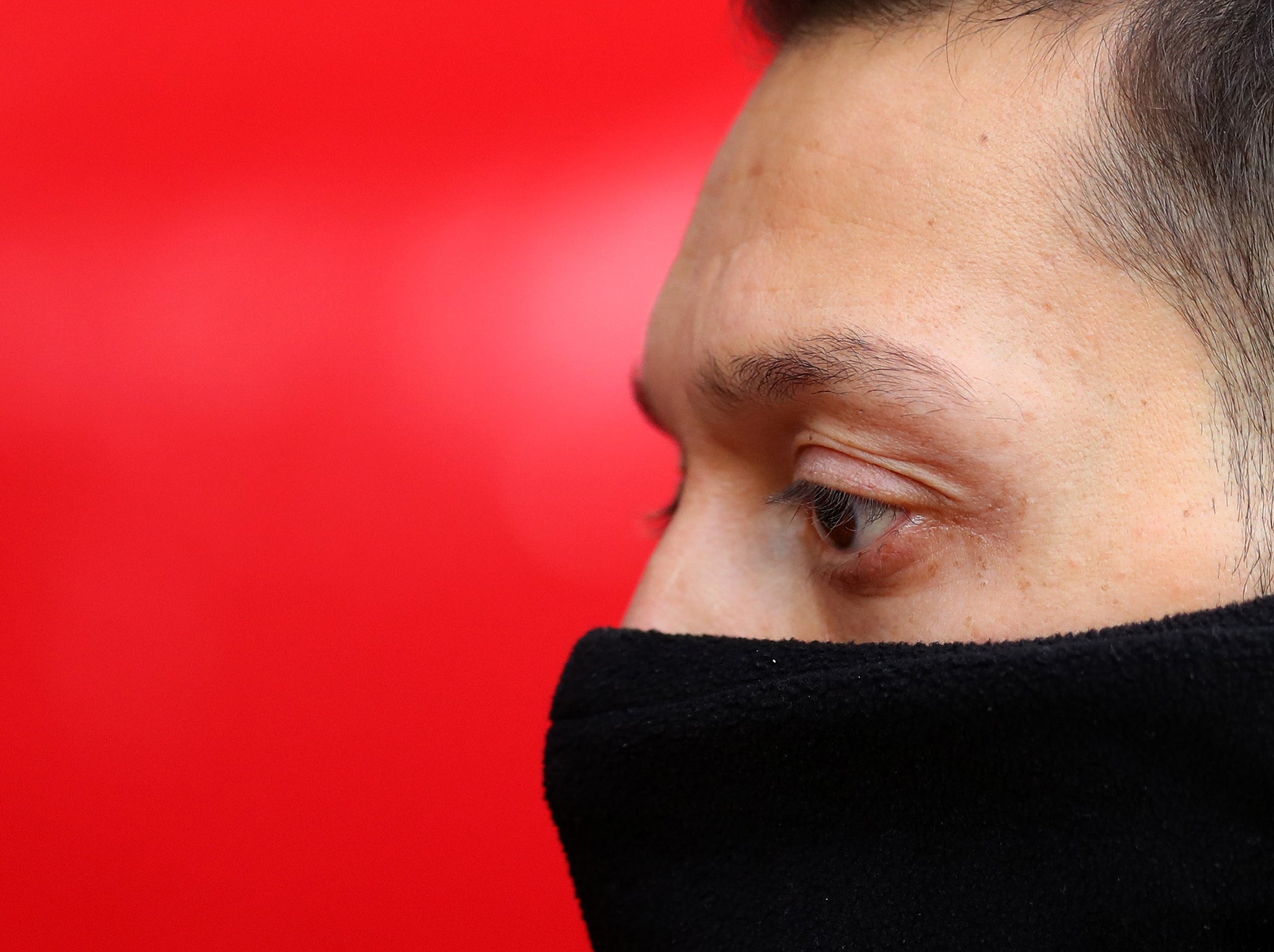Mesut Ozil misses out for Arsenal against Tottenham but was honesty really the best policy for Unai Emery?
Where was the tactical benefit in leaving Ozil out of the matchday squad altogether, a decision guaranteed to invite uncomfortable post-match questions?

Your support helps us to tell the story
From reproductive rights to climate change to Big Tech, The Independent is on the ground when the story is developing. Whether it's investigating the financials of Elon Musk's pro-Trump PAC or producing our latest documentary, 'The A Word', which shines a light on the American women fighting for reproductive rights, we know how important it is to parse out the facts from the messaging.
At such a critical moment in US history, we need reporters on the ground. Your donation allows us to keep sending journalists to speak to both sides of the story.
The Independent is trusted by Americans across the entire political spectrum. And unlike many other quality news outlets, we choose not to lock Americans out of our reporting and analysis with paywalls. We believe quality journalism should be available to everyone, paid for by those who can afford it.
Your support makes all the difference.Before Son Heung-min’s nerveless finish, or a moment of pure fizzing brilliance from Dele Alli, or the plastic bottle which subsequently careered into his head, or even the full-time whistle that consigned Arsenal to a second defeat in as many games, there was to be yet another episode in north London’s longest-running drama.
The first plot twist was that Unai Emery had been unable — or unwilling — to find any room for Mesut Ozil in his 18-man matchday squad. The second was his bracingly honest reason why.
‘Tactical reasons.’
It was Emery’s latest and most damning reason for snubbing his highest-paid player. First there was the ‘sickness’, kept as deliberately vague as somebody pulling a half-arsed sickie in the early hours of the morning. Then the leading accusation made at Bournemouth, that Ozil would have struggled to cope with the “physicality and intensity” of the match. Then the mysterious and much-mocked “back spasms”. And now this. ‘Tactical reasons.’
But, really, where is the tactical benefit in leaving Ozil out of the matchday squad altogether, a decision guaranteed to invite uncomfortable post-match questions from reporters with an easy headline in mind? Who really benefits from Ozil’s total exclusion — with the exception of Messrs Nketiah and Willock? And what tactical advantage does Emery gain from having Ozil while away yet another evening stewing at his desk competing against teenagers on Fortnite?
After just his fourth defeat as Arsenal manager, Emery was immediately quizzed about his decision to leave his £350,000-a-week man at home. He could have skirted around the topic quite easily, by throwing a quizzical look at his translator and talking around the subject as he is wont to doing. Instead he doubled down.
Why was Ozil left out?
“It was a tactical decision. I thought the players who were with us today were the best for us in this match.”
Does that mean Ozil could be sold in January?
“My focus is on the analysis of this match and on Saturday. Tomorrow we go to training with every player.”
So he doesn’t have a future at Arsenal?
“I am thinking of the match on Saturday. I am not thinking about another situation.”

That Emery is as daring as he is dauntless was made obvious from his first few weeks at Arsenal, when he immediately set about making a number of difficult decisions that Arsene Wenger had spent several years studiously ignoring. But for those who disregard Emery’s explanation, instead concluding that this was a classic managerial power play made with all the subtlety of a bayonet charge, this might just be Emery’s boldest moment yet.
The fact that Ozil has been utterly useless since one sublime spell against Leicester at the end of October is largely irrelevant. Dropping Ozil out of the squad is a seismic act not because of the immediate repercussions but because of what it represents: he is Arsenal’s crown prince on an eye-watering wage, who enjoyed the run of the place under Wenger. Freezing him out represents a break from the past.
Yet that doesn’t necessarily mean it is automatically the correct decision. Ozil’s popularity has long since waned with the majority of Arsenal supporters but only the most blinkered of those would argue this match wasn’t tailor-made for a man of his abilities. As play sluiced wildly from one end of the pitch to the other, and Arsenal struggled desperately to maintain possession, they desperately lacked somebody offering a clear head and control. At his best, Ozil provides both.
Arsenal had chances. Regrettably, two of the best fell to the two men stationed in the roles usually occupied by Ozil. Henrikh Mkhitaryan shot straight into the grateful arms of Paulo Gazzaniga early on, while Aaron Ramsey saw a sweet volley well tipped onto the post, just moments after firing wide. They made just one key pass between them. Neither covered themselves in any glory.

Perhaps the most bizarre aspect of Ozil’s exclusion was the sight of Ramsey staggering around ineffectually in his favoured role: a player who has been told he can leave for zilch at the end of the season moonlighting for the club’s most expensive asset who is as equally unwanted. Regardless of your opinion on either player — wouldn’t Arsenal be better off keeping at least one?
Emery spoke about a “reality check” after the defeat by Southampton last weekend: the fallout from this defeat, with so many difficult questions still to ask, will be worse. And in first deciding to drop Ozil, and then being so open about the reason why, he has hardly made life easy for himself.
Maybe dropping Ozil was the right call. Maybe it wasn’t. Whatever — in this instance was honesty really the best policy?
Join our commenting forum
Join thought-provoking conversations, follow other Independent readers and see their replies
Comments